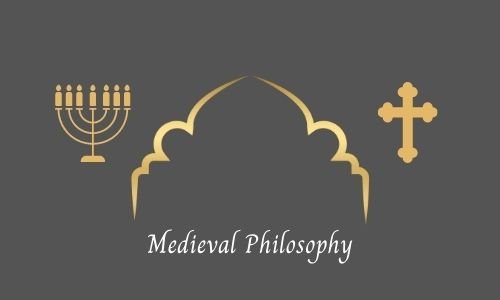Philo of Alexandria
Philo of Alexandria: Bridging Hellenism and Judaism
Philo of Alexandria (20 BCE to 40 CE), also known as Philo Judaeus, was an influential Jewish philosopher born in Alexandria, Egypt, around 20 BCE.
He is widely regarded for his attempt to harmonize Jewish theology with Greek philosophy, making him a pivotal figure in the development of religious thought, particularly within Judaism and, subsequently, early Christianity.
Philo’s legacy lies in his pioneering work of blending the cultural and intellectual streams of Hellenism (post-Socratic Greek Philosophy) with the religious principles of Judaism, creating a foundation for later religious and philosophical dialogue.
This article explores his early life, education, philosophical contributions, and enduring influence.
Table of Contents
(1) Early Life and Education
Philo was born into a prominent, wealthy Jewish family in Alexandria, a bustling center of trade and culture and one of the most significant Hellenistic cities of the ancient world.
His family’s status gave him access to a world of education, resources, and intellectual diversity, which would significantly shape his outlook and philosophical journey.
Philo’s education was steeped in the Greek intellectual tradition, which was accessible to Alexandria’s educated elite.
Alexandria was known for its Great Library and as a hub for scholars of all backgrounds, making it a fertile ground for philosophical development.
In addition to learning Jewish scriptures and Hebrew, Philo studied Greek literature, rhetoric, and philosophy, including the works of Plato, Aristotle, and the Stoics.
This immersion in both Jewish teachings and Greek thought inspired Philo to create a philosophical synthesis that honored his religious heritage while incorporating insights from Greek philosophy.
(2) Travels and Historical Context
Although specific details about Philo’s travels are limited, one significant event was his journey to Rome in the early 40s CE.
He led a Jewish delegation to advocate for the rights of the Jewish community under the rule of the Roman Emperor Caligula.
Caligula’s hostility toward the Jews and his insistence on being worshipped as a deity posed a direct challenge to Jewish monotheism.
Philo’s writings on this delegation, notably in Legatio ad Gaium (“Embassy to Gaius”), highlight his rhetorical skill and his commitment to the rights of his people.
The embassy failed to persuade Caligula, but it illustrated Philo’s dedication to his faith and his people’s well-being, even under the most difficult political circumstances.
(3) Philo’s Philosophy
Philo’s primary philosophical aim was to reconcile Jewish theology with Greek philosophy, especially the ideas of Plato and the Stoics.
He believed that Jewish scripture and Greek philosophy shared essential truths and that wisdom could be found by blending these two traditions.
At the heart of Philo’s thought were two significant concepts: allegorical interpretation of scripture and Logos as an intermediary force.
(i) Allegorical Interpretation
Philo was one of the earliest and most ardent proponents of allegorical interpretation, a method he used extensively in his commentaries on the Hebrew Bible.
Allegorical interpretation involves reading beyond the literal text to discover hidden, symbolic meanings.
Philo argued that the stories in the Hebrew Bible held deeper truths about the nature of God, the universe, and human existence.
This method allowed him to present Jewish scriptures as containing sophisticated philosophical insights that could stand alongside Greek philosophy.
For instance, in his interpretation of the creation story in Genesis, Philo asserted that the six days of creation were not literal days but symbolic of stages in the unfolding of the cosmos.
Similarly, he interpreted the Garden of Eden as an allegory for the soul’s journey and the internal struggle between reason and desire.
By reading the scriptures through a philosophical lens, Philo created a more universally accessible understanding of Jewish texts, which he believed would appeal to Hellenized Jews and even to some Greeks.
(ii) Logos: The Divine Intermediary
Another cornerstone of Philo’s philosophy is his concept of the Logos. Derived from the Greek word for “word” or “reason,” Logos in Philo’s work represents the divine intermediary between God and the material world.
Philo saw God as a transcendent, ineffable being who could not be directly known or comprehended by humans.
The Logos served as the means by which God interacted with the world and conveyed divine wisdom to humanity.
For Philo, the Logos was both a rational principle and a divine force that bridged the gap between the mortal and the divine.
Philo’s notion of Logos would later influence Christian theology, particularly in the Gospel of John, where Jesus is referred to as the “Word” (Logos) made flesh.
While Philo’s Logos was not personified, as it would be in Christian theology, the idea of an intermediary divine force helped lay the conceptual groundwork for later Christian ideas about the nature of Christ.
(iii) Virtue and Ethics
In addition to his metaphysical ideas, Philo was deeply interested in ethics and the cultivation of virtue.
He believed that reason was the highest gift given to humans by God and that the virtuous life was one led in accordance with reason and the divine will.
Philo held that following the Mosaic Law was not only a religious obligation but also a path to cultivating wisdom and moral character.
For him, the commandments of the Torah were rational and ethical principles that could guide one to a life of virtue and spiritual fulfillment.
This emphasis on virtue and ethical monotheism became a central theme in both Jewish and early Christian thought.
(4) Philo’s Influence and Impact
Philo’s philosophical synthesis was not widely recognized during his lifetime, and he had limited influence within the Jewish community of his era.
Traditional Jews viewed Greek philosophy with suspicion, and Hellenistic Jews often did not emphasize Jewish theological teachings.
However, Philo’s works were later rediscovered and revered by early Christian thinkers, particularly by the Church Fathers.
Christian theologians like Clement of Alexandria, Origen, and later Augustine were heavily influenced by Philo’s allegorical interpretations and his concept of Logos.
His writings provided early Christian theologians with a framework for interpreting the Hebrew Bible in ways that aligned with Greek philosophical traditions.
Philo’s influence is also seen in the development of Christian Neoplatonism, a tradition that emphasized the unity of all things through a transcendent God, an idea resonant with Philo’s teachings.
Philo’s approach also left a lasting impact on Jewish philosophy, particularly during the Middle Ages.
Medieval Jewish philosophers such as Maimonides would later adopt Philo’s approach of harmonizing Jewish thought with Greek philosophy, though they did so through the lens of Aristotelian rather than Platonic philosophy.
In contemporary Jewish thought, Philo’s legacy is complex. While some view him as a pioneer of Jewish philosophy, others regard his work as too Hellenized, diverging from traditional interpretations of Jewish teachings.
Yet Philo’s writings remain a vital bridge in the history of philosophy and religious thought, offering insights into the ways religious traditions can engage with broader cultural and intellectual movements.
(5) Conclusion
Philo of Alexandria’s life and work represent a remarkable effort to harmonize two seemingly divergent traditions.
By synthesizing Greek philosophy with Jewish theology, Philo created a philosophical system that emphasized both reason and faith, ethics, and transcendence.
Although his immediate influence on the Jewish community was limited, his writings provided a foundation for Christian theology and later Jewish philosophy.
Philo’s commitment to allegorical interpretation and his innovative concept of the Logos enabled him to find universal philosophical principles within his faith, creating a unique model for interfaith and intercultural dialogue.
Through his work, Philo demonstrated that the pursuit of wisdom and understanding can transcend cultural and religious boundaries, encouraging us to seek common ground in our shared quest for truth and meaning.
In this way, Philo’s legacy continues to resonate, reminding us of the transformative potential of philosophy when it bridges diverse traditions and perspectives.








